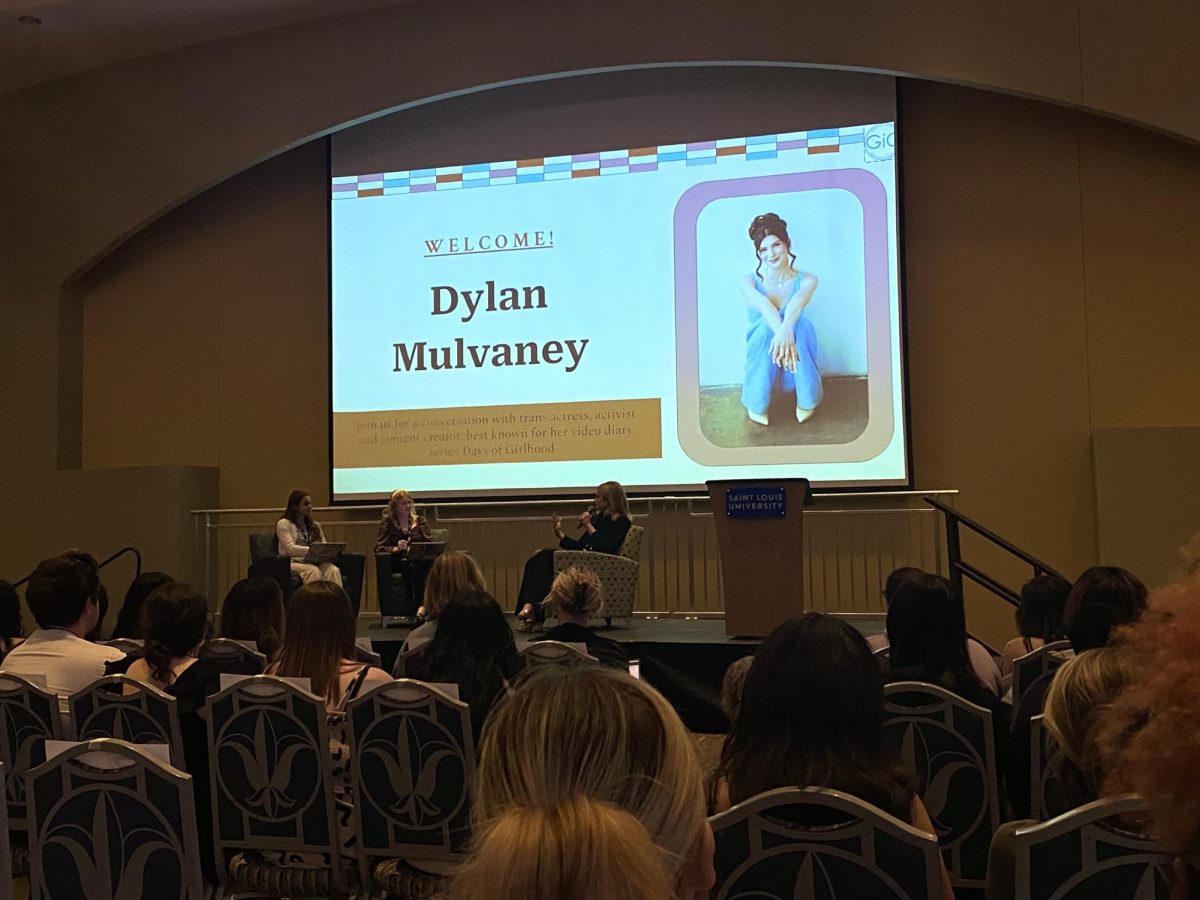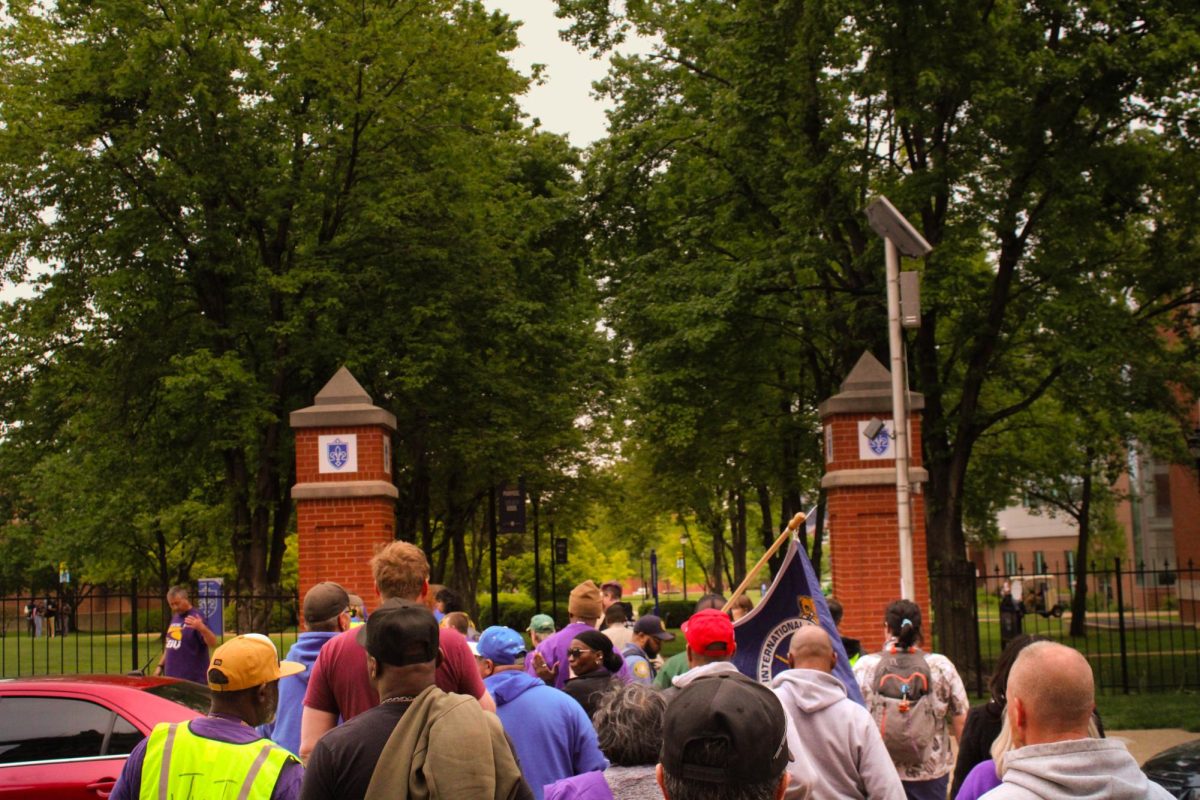As knowledge and technologies progress, cancer research has the possibility of yielding fresh waves of hope and prospective promises of survival for those with cancer.
“There are some things that are relatively novel to surgery such as the usage of a specific device called the cyber knife to treat patients with lung cancer and prostrate cancer in clinical trial open surgery,” said Mark Varvares, the director of SLU’s Cancer Center.
“With the knife, now there is a technology with more precise surgery. Potential risks to normal tissue surrounding the prostate are very low and the control rate is very promising.”
Current research doesn’t just yield more practical tools for surgery on cancer patients.
A group of doctors in a division of SLU’s Medical School called the Institute for Molecular Biology has been approaching cancer treatment by manipulating viruses and exposing the viruses to cells.
For many years, the doctors have studied the interactions between viruses and cancer. They have found that there are certain types of viruses to cure cancers.
“There is a professor of microbiology at SLU, William Wold, who has developed a virus that is currently being used in clinical trials [outside of SLU],” said Varvares. “It’s in the earliest stages of clinical trial. The primary role of phase one trial is to look at side effects and see how toxic the virus is to the body. In animal studies this has had tremendous promise in curing cancer.”
According to Varvares, there are also programs at SLU that determine how to treat liver cancer.
This is a major component of the cancer department at SLU. Researchers are studying the role of the Hepatitis C virus in liver cancer by doing research in that area in hopes to cure the cancer.
Nationally, trends in cancer research yield attempts to target individual cancer cells, without injuring healthy cells.
“These targeted therapies have provided for lots of things that have been found to specifically target cancer cells.
“An example of targeted therapy going on now is with the substance, called Erbitux, which is a monochromal antibody made specifically for a receptor on cancer cells. The receptor EGR is on the surface of more aggressive cancer cells.
“The new drug binds to these receptors, and when combined to other drugs and radiation, make the cells more susceptible to being killed,” said Varvares.
Cutting edge discoveries with concerning viruses appears to bring clues as to causes of many cancers.
Varvares reported that HPV, human papillomavirus, has been found in a large number of patients with cancer in oral pharynx.
This virus, already known to be a cause of cervical cancer, has been found to have an involvement of cancer in the oral cavity as well.
“HPV 16 now being found to lead to cancer in the back of the throat and behind the tongue,” said Varvares.
With health care drastically changing with studies and discoveries, funding is a crucial part of the lifespan of the research.
The American Cancer Society is closely involved with a vast amount of research groups, including that of SLU.
“Our involvement with [the American Cancer Society] is through the programs to help support our patients. We have had a lot of interactions with them over the years,” said Varvares.
Programs such as Race for the Cure and Relay for Life raise funds to help with the innovative research that is conducted daily in order to eventually find a method for all patients to win the battle with cancer.
April Dzubic, the communication director for the eastern Missouri ACS, said that RFL is key to her organization’s operations.
“Relay for Life is the heart and soul of what we do. . It’s because of participants in [SLU’s] event . that it’s adding up to be this much,” she said. “We would not be able to do anything without RFL and its participants.”
Dzubic said that the money raised by RFL at SLU will be funneled into St. Louis hospitals and universities for cancer research.
Each year, approximately 5,028 St. Louis City and County residents are diagnosed with cancer, according to Dzubic. In 2007, 3,637 cancer patients in St. Louis City and County received a service from or participated in an ACS program.
Some of the ACS services available include transportation assistance for patients, nutritional supplements and informational publications and programs to help female patients cope with body changes due to medication and chemotherapy. There are also programs to educate and encourage patients on how best to deal with cancer.
Dzubic said that there are a number of volunteer projects that students can get involved in if RFL doesn’t satiate their need to help fight cancer.
-Additional reporting by Adam Tamburin.






